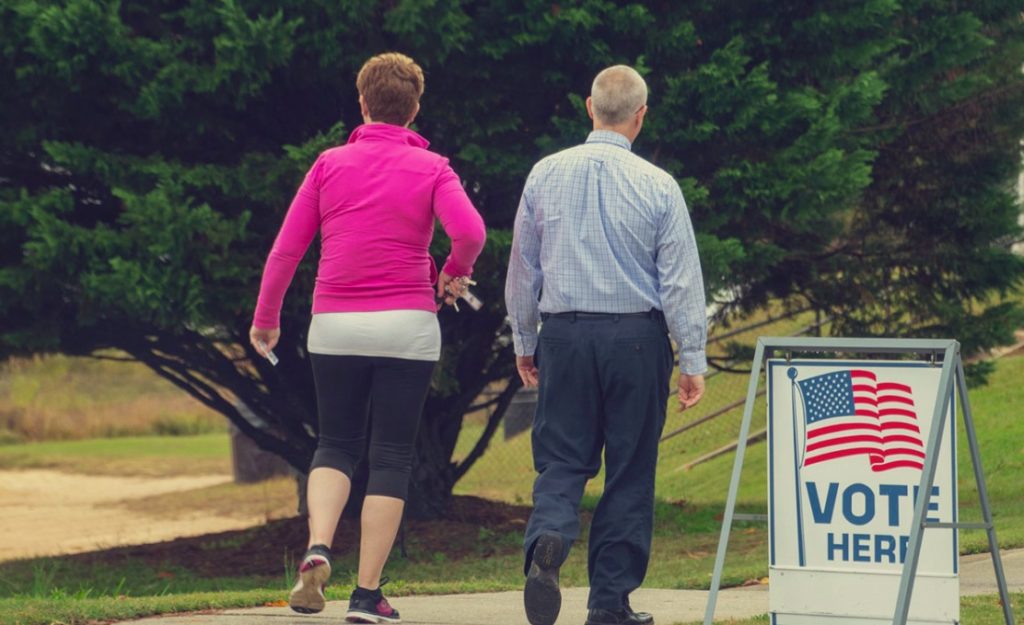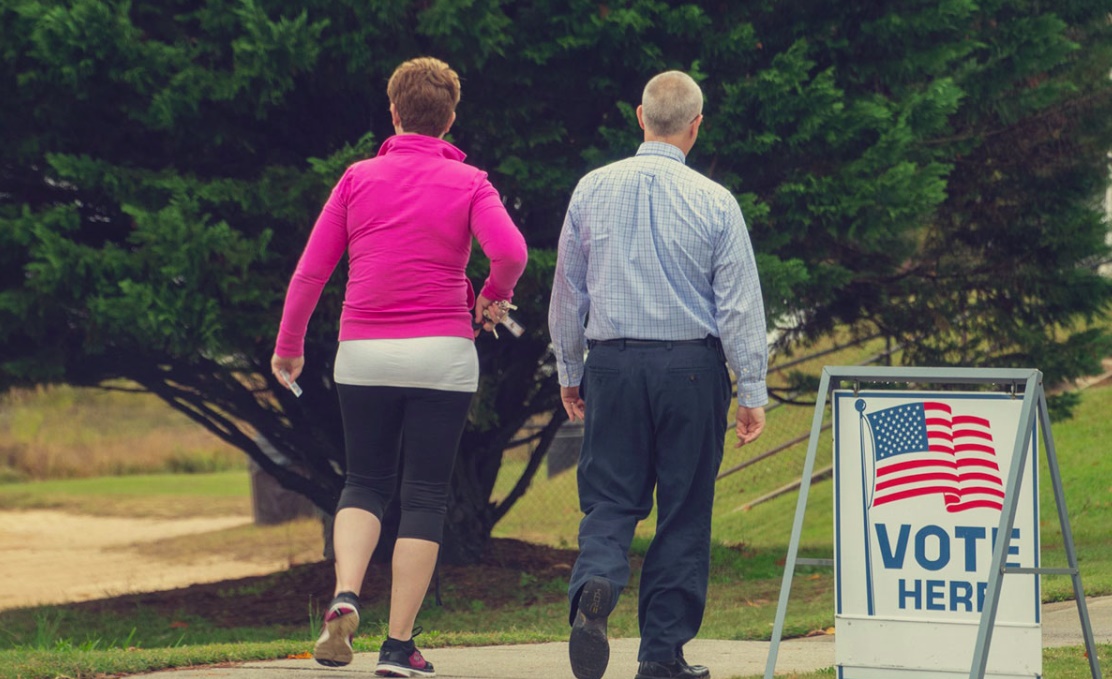by Megy Karydes. This article originally appeared on Next Avenue.

Credit: @JackieWaldrop via Twenty20
Now that the 2020 election season is officially underway, you may be interested in finding ways to become politically active. Not only could doing so help you make a difference, it could boost your sense of well-being, too.
Getting involved in campaigns and issues is something that many people in their 50s and 60s find especially appealing. Sometimes, it brings them back to their younger days.
Ellen Hendrickx grew up in a politically active family. But it wasn’t until after her daughter went to college that Hendrickx became active herself as an adult, locally in Greenburgh, N.Y., near New York City.
In 2010, just before turning 60, when a downturn in the economy destroyed her 20-year career in architecture, she began using her newfound free time politically. Hendrickx first worked as a Westchester County legislative aide and then was appointed a Greenburgh councilwoman. She’s now assistant director of intergovernmental services for the Westchester County Executive’s Office.
She has noticed more women getting involved politically than men. “I just think that’s the way women roll,” Hendrickx says.
Benefits of Becoming Politically Active
Learning something new, giving back and advocating for issues are among the reasons older Americans are getting involved in political activism. Combating loneliness is another.
“For a lot of people over fifty, loneliness is a big problem,” says Nina Eliasoph, professor of sociology at the University of Southern California and author of Making Volunteers, The Politics of Volunteering, and Avoiding Politics. “One of the most amazing blessings of the growth of political activism lately is that people are getting to break out of their isolation and find people who can be ‘friends’ in the way the classical Greeks meant: people who enjoy each other’s company while encouraging each other to become a better human being.”
Becoming a political activist is easier than you may think.
It doesn’t require hours or days each week (unless you want it to). Most political volunteers aren’t full-time activists, says Michael Weinberg, 61, CEO of NTIB Finance and Consulting in Chappaqua, N.Y. He still finds time to volunteer, whether it’s acting as a political director for a state Senator’s campaign, analyzing voting turnout or advising candidates where to appear.
Do what you can, Weinberg recommends.
“Connect with a group and start slow,” he says. “Make calls, write emails, letters, go to a meeting or two if you can,” he says.
Most organizations always have a list of things that need to be done and never enough volunteers to do them. “Once you get into it, you will have the opportunity to learn new skills or take on a task that you thought you couldn’t do,” says Weinberg.
No Political Experience Needed
Don’t let a lack of knowledge about politics deter you. One reason people don’t volunteer in election campaigns is because they feel shame about how little they know about politics, says Eliasoph.
For others, the term ‘political activism’ is a turnoff since they think that means just attending rallies or marches for a particular Republican or Democratic candidate.
“A lot of us aren’t quite that party-oriented,” says Eliasoph. “We don’t swallow the whole party line and don’t want to wear funny hats and go to big, loud events where we yell about how great our candidate is.”
Instead, you might think about the issues that are most important to you in 2020 and how you can get involved in them. Then, you can decide how much time to spend volunteering politically.
“You could find a national or local nonprofit you like — that works for the environment or for education,” says Eliasoph. “Some have local volunteers working on them.”
Getting Involved With Younger People
Or you might want to get involved with younger people. In the League of Women Voters’ youth voter registration project, for instance, more than 60 of its affiliates have hosted nearly 800 events.
“Older people can be stereotyped as caring only about older people,” says Aaron Tax, director of advocacy with SAGE, a national advocacy and services organization for LGBT elders. “We find that LGBT older people and allies want to share their opinions on many things that fall outside of the traditional realm.”
SAGE encourages civic engagement for LGBT older people in an number of ways, including their National Day of Advocacy. That’s when older people from across the country come to Washington, D.C., learning how to be more effective advocates and talking to their members of Congress about issues that are important to them.
Those who can’t make the trek can sign up to receive action alerts so they can know when events will happen near them, as well as ways to sign pledges or make phone calls to their elected officials.
To Get Involved, Take a Letter
Remember, too, that there are some things you can organize on your own to become politically involved.
Eliasoph likes to choose a letter to brainstorm activity ideas. For example, starting with “B,” she came up with bake sales, bowling, beers and barks.
“You can sell cupcakes at the farmers market or go bowling to raise money and awareness about your candidate or issue,” she suggests. “For something really low-key, invite people to a bar to have beers or to a park to walk their dogs and just talk about an issue or candidate. The point of these isn’t just to raise money, but to get into real conversations with people.”
Weinberg says he can’t stress enough how enjoyable political volunteering can be. Not only can you make new friends, you’re doing something meaningful for organizations or candidates whose mission you want to advance.
“There are so many good organizations and candidates. You should always be able to find ones that fit your schedule and skill sets and who have other volunteers that you like and want to spend time with advancing the cause,” says Weinberg.
The opinions expressed in this article are those of the author and do not necessarily reflect those of the Diverse Elders Coalition.

